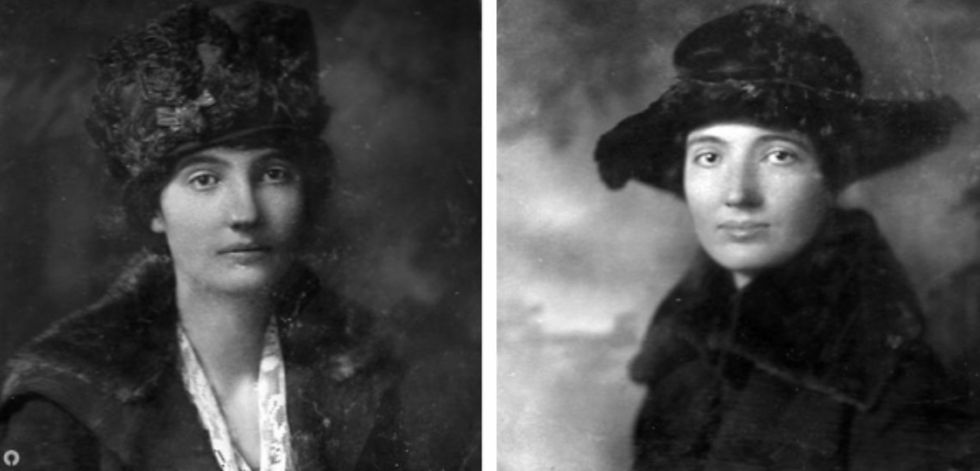
Dorothea and Gladys Cromwell were twin sisters born in Brooklyn in 1885. As descendants of Oliver Cromwell, the women had great wealth. They also inherited their father’s fortune; he was a trustee of the Mutual Life Insurance Company.
When World War I broke out, they volunteered as nurses with the Red Cross. They went to France, cared for the wounded soldiers in hospitals, and befriended refugee children. Everyone loved them and admired their skill and courage. They were involved in several campaigns and were often in real danger. This article was published in 1919 about their work:
“For eight months, they worked under fire on long day and night shifts….they slept in caves or under trees; they suffered from exhaustion. They had never known such physical labor…They believed their work a failure and their efforts futile…overwhelming strain and fatigue made them wearier than they realized. The horror of the conditions near the Front broke their already overtaxed endurance. ”
After the armistice of November 11, 1918, their brother asked them to come home. The sisters booked passage on the S.S. La Lorraine bound for New York. The ship sailed on January 1, 1919. That night the watchman saw two women, each wearing a black cape, walking arm-in-arm on the deck. One at a time, the women climbed atop the ship's rail and disappeared into the blackness. Two faint splashes were heard below. The ship could not stop for 5 miles, and the women were lost.
Later a note was found in their stateroom, stating they intended to “end it all.” The Cromwell twins, subjected to the horrors of war, ranging from shelling to dealing with the injured and dead, decided to take their lives. Back then, they called this Shell Shock, but today we call it Post Traumatic Stress (PTS). The Red Cross manager attributed their Shell Shock to their “sympathetic nature.” Clearly, the twins were Empaths, and compassion fatigue was the starting point of their downward spiral. They were buried in France with honors, and a cenotaph (tombstone without a body) appears today in Green-Wood Cemetery, Brooklyn, New York.
This story is an important reminder that Compassion Fatigue and PTS are nothing new. Unfortunately, these problems are still not getting the attention and interventions needed. Many of us are Empaths and not always well-understood. This rare personality characteristic is our greatest strength and our greatest weakness. In my next blog, I will discuss suicide and prevention measures in the helping professions.


Comments